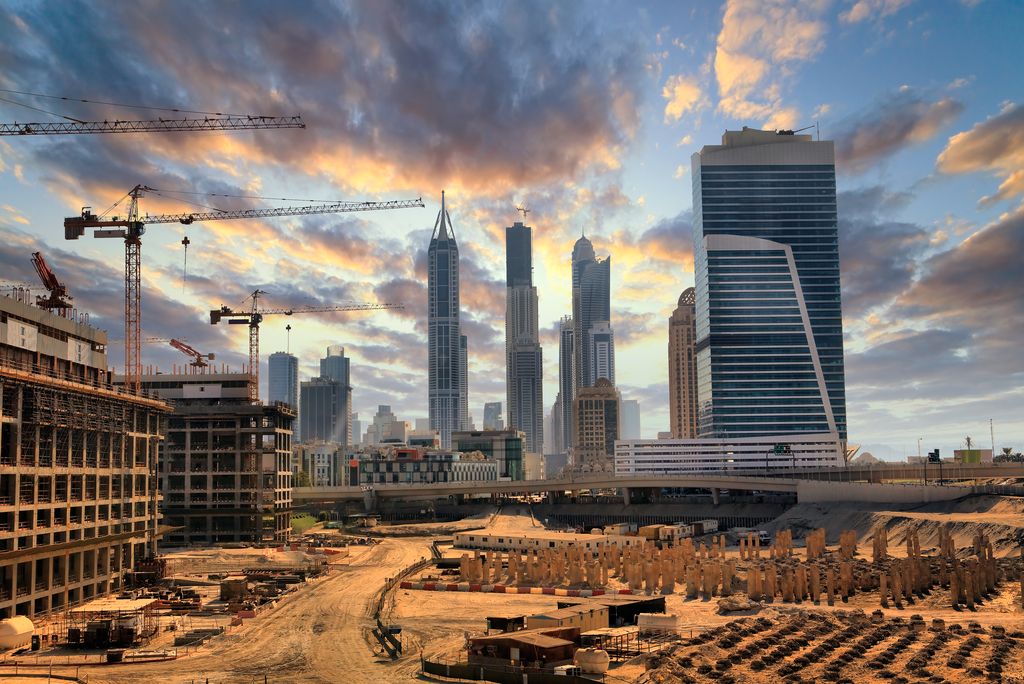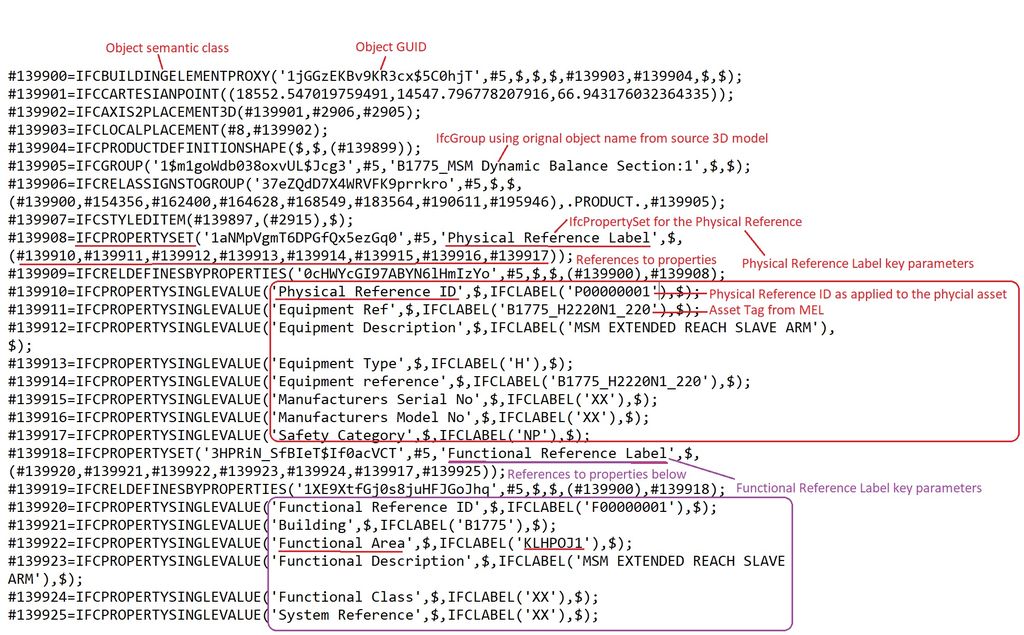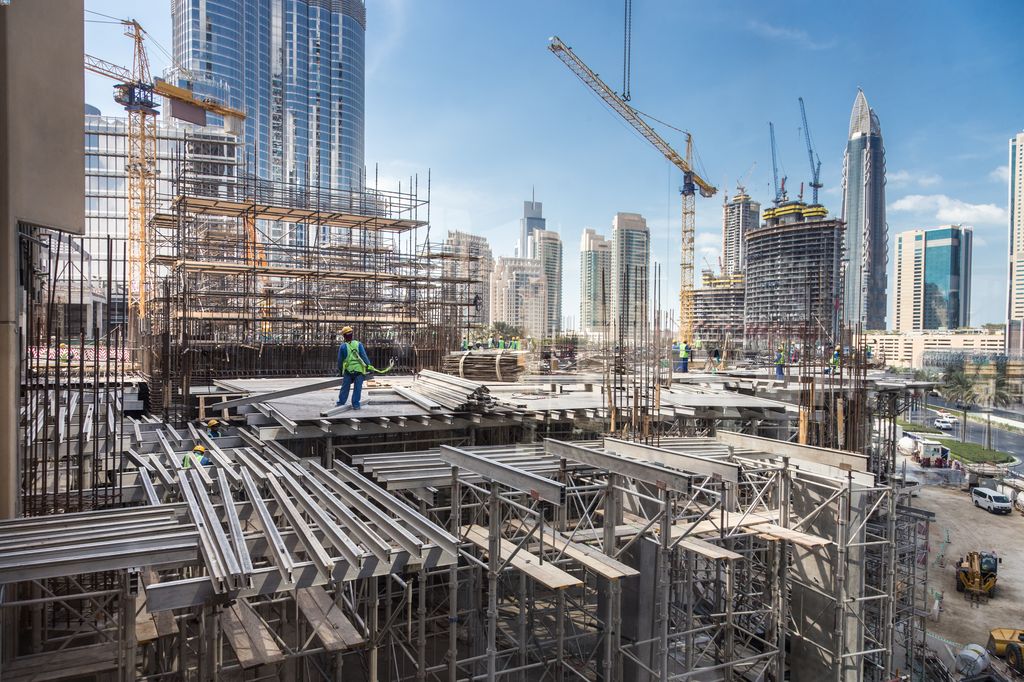
Upcoming IFC Regulations For Dubai Construction Projects
The fast-paced growth of Dubai’s skyline is not just a testament to its emerging markets and economic surge but also a showcase of the evolving standards in international building and construction.
In this article, we explore the latest IFC regulations for Dubai construction projects and what it could mean for design teams working on future building projects.
We also take a look at the critical role of Industry Foundation Classes (IFC) 3D models, especially in the context of Dubai’s ambitious construction projects.
From understanding what IFC model files are to examining their impact on the global construction industry, this article is a must-read for professionals and enthusiasts alike.
Dive into the world of IFC files, learn about their significance in the building process and discover how they are shaping the future of construction in Dubai and beyond.

New IFC Regulations For Future Dubai Building Projects
Recently, the Building Regulatory & Licensing Agency announced the mandatory use of openBIM and IFC for all building permit applications in the Emirate of Dubai.
It has been decided that for all new building permit applications, the submission of architectural and construction designs must be in the form of Building Information Modelling (BIM), adhering to the established Dubai municipality standards.
This covers:
- Architectural designs for buildings and facilities with more than 20 floors and structural designs for those exceeding 40 floors.
- Buildings and complexes that span over 20,000 square metres for architectural purposes and 30,000 sqm for structural purposes.
- Specialised structures including hospitals, universities and similar facilities.
- Government initiatives, with the exception of projects limited to facilities.
What We Know So Far
Whilst we are aware of the features mentioned above, the full scale of the latest IFC regulations for Dubai construction projects are still relatively unknown. However, from the information already to hand, we understand that the new regulations will be inkeeping with controlling the overall massing of the Dubai city zoning strategy.
This significant move, effective from 1st January 2024, is evidence of Dubai’s commitment to digitalisation.
It underscores the Dubai government’s dedication to advancing the digital transformation within the built environment sector, aligning seamlessly with Dubai’s forward-thinking vision and mission for the future.
Building In Dubai Platform
The recently unveiled at GITEX Global 2023, the Build In Dubai platform is designed to cater to a wide range of stakeholders in the Dubai construction sector.
This includes property owners, developers, consultants, and contractors, providing a comprehensive resource tailored to meet the diverse needs of these key industry participants.
The Build In Dubai platform is set to offer a broad array of services for the construction sector, enriched with the latest technological advancements.
This includes innovative features like automated auditing of building designs through Building Information Modelling, showcasing a blend of technology and industry expertise.
What Are IFC Files and Why Are They Essential in Construction?
The Foundation of Building Projects
IFC files, or ‘Industry Foundation Classes’ 3D model files, are the final, detailed design models used by contractors to build or construct a project.
These documents are critical in ensuring that the construction phase proceeds smoothly, adhering to the designed specifications and standards.
Ensuring Compliance and Quality
The significance of quality controlled IFC files lies in their role as a benchmark for quality and compliance.
They represent the culmination of the design phase, incorporating all necessary revisions and approvals and serve as a definitive guide for builders.

How Do IFC Files Drive Construction Projects in Dubai?
The Role of IFC in Dubai’s Construction Sector
Dubai, known for its architectural marvels, relies heavily on IFC files to translate visionary projects into reality.
These ‘openBIM’ 3D model files ensure that every aspect of the city’s unique and complex structures is meticulously planned and executed.
Contributing to Dubai’s Skyline
The use of IFC in Dubai’s construction projects, such as the Burj Khalifa, the world’s tallest skyscapper, has been instrumental in achieving unparalleled engineering precision and architectural integrity, setting a global standard for building development.
The Integration of BIM in IFC
Revolutionising Construction with BIM
Building Information Modelling (BIM) has become a game-changer in the construction industry.
The integration of BIM with IFC allows for a more detailed, three-dimensional representation, enhancing clarity and reducing errors.
Benefits for Stakeholders
BIM’s detailed digital representation in IFC model files offers numerous benefits for all stakeholders, including enhanced collaboration, improved accuracy and efficient project management.
Navigating the Approval Process for IFC Files
Understanding Approval Requirements
The process of getting IFC files approved after submission involves several stages, including compliance checks with local building codes and standards.
This is particularly relevant in Dubai, where building regulations are stringent.
Role of Local Authorities
Local authorities in Dubai play a crucial role in reviewing and approving IFC files.
Their oversight ensures that the construction projects meet all safety, environmental and design standards.
IFC and International Standards in Building Construction
Global Relevance of IFC Standards
IFC files are not just crucial in Dubai but are also aligned with international standards in building construction, namely the ISO 19650 suite of standards for information management and information exchange. They promote uniformity and quality across projects worldwide.
As the proprietor of the IFC standard, buildingSMART stands at the forefront of this transformative era in construction.
Their authority in developing and maintaining the IFC standards is instrumental in shaping a more integrated, efficient and sustainable global built environment.
Impact on International Projects
For international projects, adherence to IFC standards ensures consistency and helps in overcoming the challenges posed by varying local regulations and practices.

The Future of IFC - Trends and Innovations
Emerging Technologies and IFC
The future of IFC is closely linked with technological advancements. Innovations such as AI and machine learning are set to further streamline the whole design and construction process.
Such innovations are made easier by the standardised and predictable structure of IFC files.
Sustainable and Smart Building Trends
With a growing focus on sustainability, IFC standards are evolving to incorporate eco-friendly and smart building technologies, reflecting global trends towards greener and more intelligent urban landscapes.
IFC in the Context of Dubai's Development Goals
Aligning with Dubai’s Vision
IFC is integral to Dubai’s vision of becoming a global hub for innovation and sustainable development. They are key in ensuring that the city’s infrastructure projects align with this vision.
Supporting Economic Growth
Through facilitating efficient and high-quality construction, IFC standards contribute significantly to Dubai’s economic growth and its status as a leading international business and tourism destination.

Challenges and Solutions in Managing IFC
Addressing Common Challenges
The management of IFC files can be complex, involving coordination among multiple stakeholders and adherence to evolving standards.
Challenges include ensuring accuracy, managing revisions and maintaining clear communication throughout.
Innovative Solutions
Solutions such as cloud-based collaboration tools and enhanced project management software are becoming increasingly important in managing these complexities effectively.
The Role of IFC in Ensuring Safety and Compliance
Safety as a Priority
IFC is vital in ensuring the safety of construction projects. The IFC files can provide detailed guidelines for structural integrity, fire safety and other critical safety aspects.
Compliance with Regulations
Compliance is another key aspect, with IFC serving as a tool for builders and developers to ensure that all local and international regulations are met, avoiding legal and safety issues.
The Impact of IFC Beyond Construction
Influence on the Built Environment
The influence of IFC extends beyond the construction phase. The files impact the overall built environment, contributing to the functionality, aesthetics and sustainability of structures.
Long-term Asset Management
IFC also plays a role in the long-term management and maintenance of buildings, providing a detailed reference for future renovations, repairs and expansions.
A prime example can be seen in how asset management assisted the nuclear decommissioning of Sellafield. A project that involved the REBIM® common data environment tool being used in the operations and maintenance phase.

8 Key Points From The Updated IFC Regulations For Future Dubai Building Projects
1. IFC files are critical for the smooth execution and quality assurance of construction projects.
2. In Dubai, IFC has been instrumental in realising architectural feats, adhering to stringent local and international standards.
3. The integration of BIM with IFC drawings has revolutionised the construction industry, enhancing accuracy and collaboration.
4. Navigating the approval process for IFC is essential for compliance with local and global standards.
5. Technological advancements are shaping the future of IFC and openBIM standards, with a focus on sustainability and innovation.
6. The management of IFC files poses challenges but also offers opportunities for more effective collaboration and problem-solving.
7. IFC is pivotal in ensuring safety, compliance and the long-term sustainability of construction projects.
8. Their impact extends beyond construction, influencing the overall quality and functionality of the built environment.
Wrapping Up The Latest IFC Regulations for Dubai Construction Projects
Essentially, IFC files are not just technical documents, they are the backbone of modern construction and building design, driving innovation, ensuring quality and shaping the future of cities like Dubai.
As we continue to witness the evolution of the construction industry, the significance of IFC in laying the foundations of tomorrow’s landmarks becomes ever more apparent.